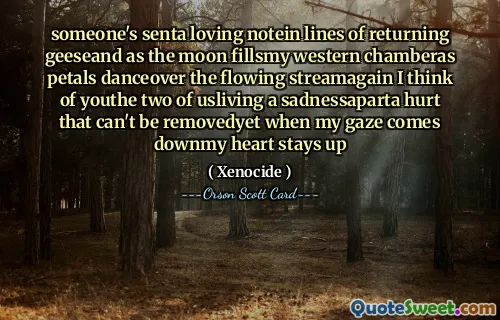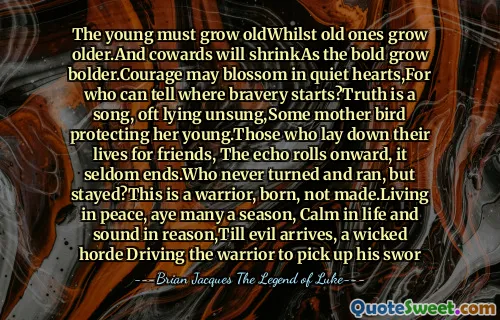
"The Apache don't have a word for love," he said. "Know what they both say at the marriage? The squaw - taking ceremony?" "Tell me." "Varlebena. It means forever. That's all they say."
This quote from Louis L'Amour's Hondo offers a compelling reflection on the cultural differences in expressing profound emotional concepts, in this case, love and commitment. The idea that the Apache language lacks a direct translation for "love" challenges the often Western-centric narrative that equates love purely with a romantic or sentimental term. Instead, what stands out in this exchange is the emphasis on permanence—"Varlebena," meaning "forever." It highlights the significance of lifelong commitment over fleeting emotion.
The differentiation between having a specific word for "love" and a word that symbolizes permanence invites us to consider how language shapes our perception of emotions and values. It suggests that, for the Apache, the priority might not be the romantic feeling but rather the enduring nature of the relationship. This contrasts with cultures where "love" often changes and evolves, sometimes fleeting and sometimes everlasting, but always focused heavily on the emotional state.
Moreover, this speaks to the depth of the marriage or joining ceremony itself, where the promise is eternal rather than transient. This conception lends a powerful gravity to the institution of marriage, bringing into sharp focus the ideals of loyalty, resilience, and long-term unity. It also implicitly critiques modern perspectives where love is sometimes seen as contingent or temporary.
Overall, the quote subtly and beautifully shifts our understanding of love from a mere feeling to a lifelong commitment, reminding us that cultural contexts deeply influence our understanding of human experiences. It invites readers to appreciate that some societies may express profound emotions not through words but through the values embodied by their traditions and rituals.




